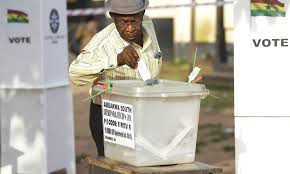Don’t Militarise The Election 2024 – Government Urged
Political leaders should promote peace on their platforms; party agents should be trained on election rules and regulations to ensure smoother conduct; The media should undergo training on conflict-sensitive reporting to enhance professionalism before, during, and after the 2024 general elections while maintaining high standards and reporting without partisanship.
- Advertisement -
Participants at the one-day regional dialogue organized by the Greater Accra Regional Peace Council (GARPC) in Accra at the Ange Hill Hotel called on the government to define the role of the military in election security management to ensure free, fair, and peaceful elections.
Under the auspices of the National Peace Council, the “Political Party Trust-Building Programme for Intra- and Inter-Party Mechanisms for Addressing Conflict project” was funded by the British High Commission through the Star – Ghana Foundation.
- Advertisement -
This was one of six dialogues earmarked for recognized registered political parties in the region to build consensus and trust in promoting and sustaining peace before, during, and after the 2024 general elections.
- Advertisement -
The Right Reverend Samuel Kofi Osabutey, Chairman of the Greater Accra Regional Peace Council (GARPC), made this known when he moderated the dialogue on the theme, “Dialogue for addressing vigilantism and guidelines on hate speech and other forms of indecent expressions.”
Twenty-four regional executives from the various political parties participated in the dialogue. These included the National Democratic Congress (NDC), People’s National Convention (PNC), Progressive People’s Party (PPP), Convention People’s Party (CPP), Great Consolidated Popular Party (GCPP), All People’s Congress (APC), Liberal Party of Ghana (LPG), Ghana Freedom Party (GFP), and the National Democratic Party (NDP).
- Advertisement -
Mr. Henry Attoh Okai, the Acting Regional Executive Secretary of the GARPC, and Madam Theodora Williams Anti, the Executive Director of the Foundation for Security and Development in Africa, and a member of the GARPC, who both facilitated the dialogue, took the participants through the Vigilantism and Related Offences Act, 2019 (Act 999) and the Guidelines on Hate Speech and Other Forms of Indecent Expressions, respectively.
Participants raised critical issues that bordered on election security management; winner-takes-all-politics, and the media. These included the EC’s lack of transparency with political parties and the public; the EC’s recruitment of incompetent and unprofessional staff to conduct elections; Political party leaders often encourage their supporters to continue violence when they realize they are losing; Political party leaders frequently use hate speech and mistrust among parties, fearing one party manipulating the electoral process in their stronghold.
At the end of the one-day dialogue, the participants also recommended that The EC should ensure transparency, accountability, and timely release of election-related information to boost confidence in their operations; The EC should enhance the professionalism of its officers in election conduct and avoid recruiting politically exposed individuals; Law enforcement agencies are advised not to use firearms within the boundaries of the polling station; The government should regularly enhance the professional capacity of law enforcement agencies through capacity-building programmes; Security personnel who exhibit unprofessional behavior should be disciplined to deter others from engaging in such behavior; The military’s role in election security management should be clearly defined; Political party communicators should receive professional training in political communication to enhance their ability to effectively communicate and engage in political discourse; Political leaders should promote peace on their platforms; party agents should be trained on election rules and regulations to ensure smoother conduct; The media should undergo training on conflict-sensitive reporting to enhance professionalism before, during, and after the 2024 general elections while maintaining high standards and reporting without partisanship.
Source: George Oko Mensah
- Advertisement -


